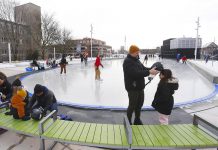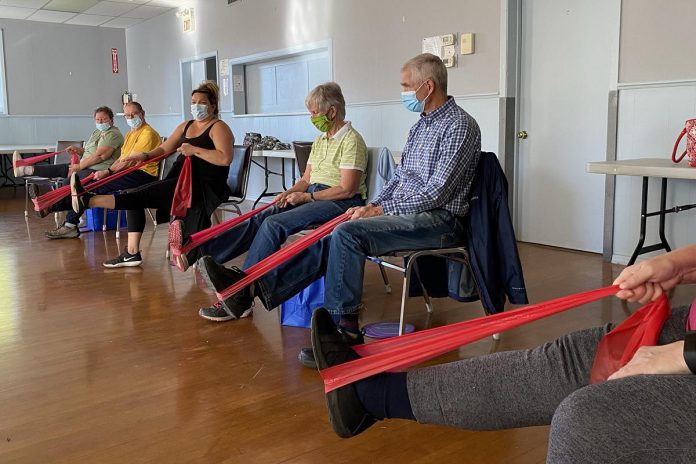
On a snowy Monday morning, instructor Jenn Stubbert situates a camera to capture herself head to toe as she marches, toe taps, and shuffles around an open space in her home. Her movements are synced to the beat of an upbeat Justin Bieber song, and she calls out instructions in a peppy voice.
About 10 other people — all in their own homes — are tuned in on Zoom to watch Stubbert and follow her movements.
They’re participating in the virtual version of Minds in Motion, one of the Alzheimer Society of Peterborough, Kawartha Lakes, Northumberland, and Haliburton’s most popular programs. Minds in Motion is a social and physical activity program for people living with early to mid-stage dementia and their care partners.
In addition to these one-hour online sessions, Minds in Motion has been safely bringing back in-person classes. Stubbert teaches two-hour in-person sessions in Peterborough, Northumberland, and Haliburton, and — come 2022 — in the City of Kawartha Lakes as well.
Participants follow COVID-19 protocols such as masking and physical distancing as they take part in an hour of exercise, followed by an hour of social recreation.
“This is your workout!” Stubbert calls out as she instructs her online Minds in Motion class to march to the beat. She reminds participants the higher they march, the harder it will be. Stubbert gives variations, both easier and more difficult, of each movement so that everyone can meet their own individual body’s abilities. One participant does the movements from a chair.
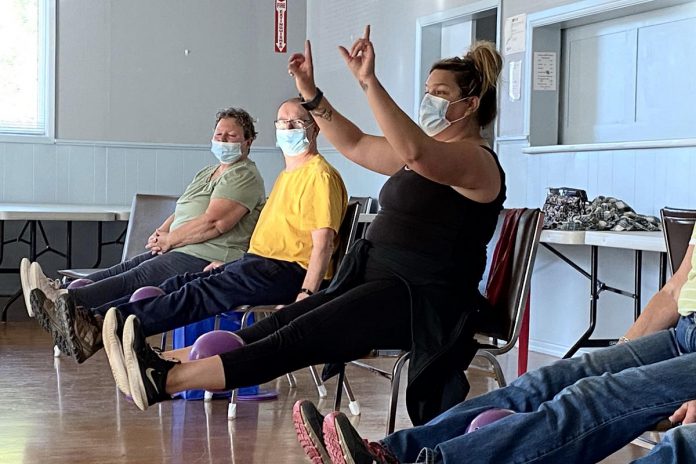
“I like to keep it fun,” Stubbert tells kawarthaNOW. “I know for myself, if I were going to be in an exercise class, I’d want my instructor to have fun with it and keep it light.”
“My biggest thing is that they’re moving. If they don’t follow me, that’s fine. It’s about getting the circulation moving and the blood flowing.”
The physical activity portion of a Minds in Motion session is proven to help improve the balance, mobility, flexibility, and alertness of those living with dementia. Accompanying care partners experience those physical benefits too.
Just as important is the social aspect of the program, with participants enjoying social activities in a safe space where they find mutual support from others who face similar circumstances.
Stubbert leads participants through activities that function as conversation starters. For example, she makes her way through a list of “Never have I ever …” style questions, one of which asks if anyone in the class has ever shot a gun. Stubbert prompts those who answer yes to elaborate further.
Stubbert says these discussions quickly turn into story trading, allowing care partners to see their loved ones reminisce about good times in their lives.
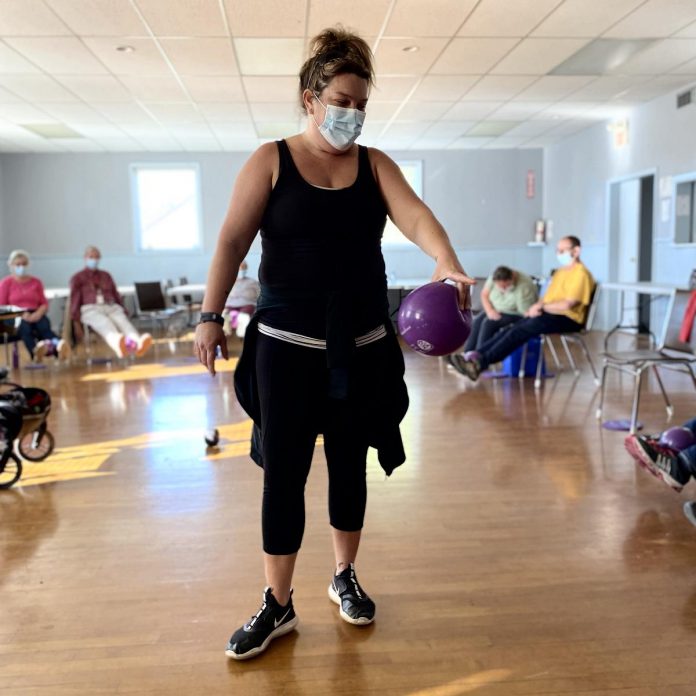
“When they’re sitting at home and it’s just the two of them, they may not have that discussion because they’ve been together for 50 years and they don’t talk about it anymore,” Stubbert explains. “But we hear funny stories all the time about cool things they used to do.”
Stubbert says the conversations often take off in hilarious directions. For example, a debate broke out when she asked a class, “If you were to be a bird, what kind of bird would you want to be?” One gentleman said he would want to be a duck.
“It became a big debate about if a duck is a bird,” Stubbert recalls. “It was this 10-minute conversation about a duck — yet everybody there was involved in this conversation.”
That level of interaction with others is especially important for people with dementia. According to a 2017 report from Canada’s National Seniors Council, older adults living with Alzheimer’s disease or other related dementia are at greater risk for social isolation.
Minds in Motion combats this problem by giving those with dementia a safe place to socialize, where they don’t have to worry about how their memory loss will be perceived.
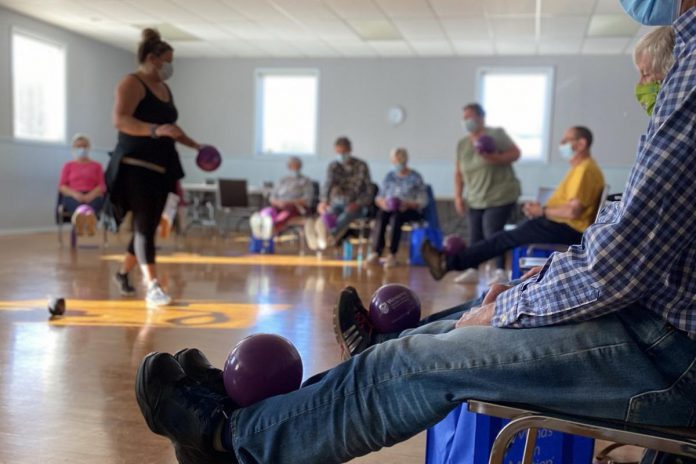
“They don’t feel alone,” notes Stubbert. “They can talk about it if they wish. They are seeing their friends in the group who also have memory loss, so they don’t feel like they’re the only ones in the world with these challenges. Someone will say, ‘Oh, I’m so forgetful’ and then somebody else will say, ‘Oh, me too! Don’t worry about it.'”
Minds in Motion also helps build the confidence of participants to engage in other social activities. For example, the program has helped make some participants more comfortable taking part in other community programs, such as aqua-fit.
The sense of community in a Minds in Motion class is immense, Stubbert says, with some members going on to spend time together outside of class.
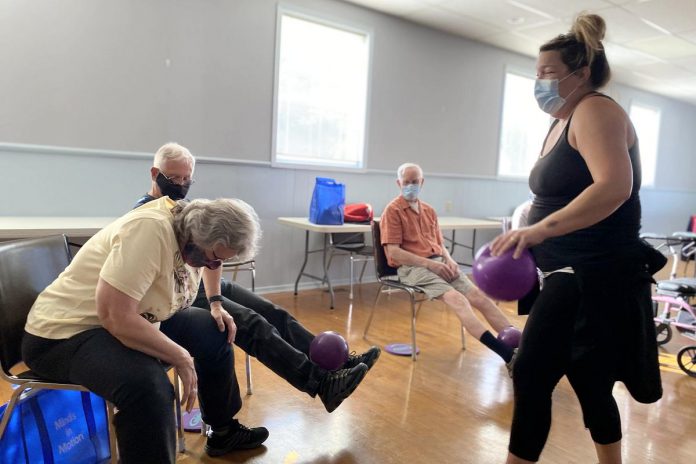
“Some couples have all gone out for lunch after the program,” Stubbert says. “They’re also going to each other’s anniversary parties and birthday parties. There was one group of 12 that became friends — they went and saw Mamma Mia together.”
Stubbert’s enthusiasm leading the program is key to its success, according to Andrea Cant, Executive Director for Alzheimer Society Peterborough Kawartha Lakes Northumberland and Haliburton.
“Jenn is uniquely gifted at motivating our clients to get moving and come out of their shells,” Cant says. “The energy she brings is remarkable. The benefits of Minds in Motion are so obvious when you see everyone in such a great mood after her classes.”
Minds and Motion participant Ryan Marjoram agrees, giving a glowing testimonial after completing a session led by Stubbert.
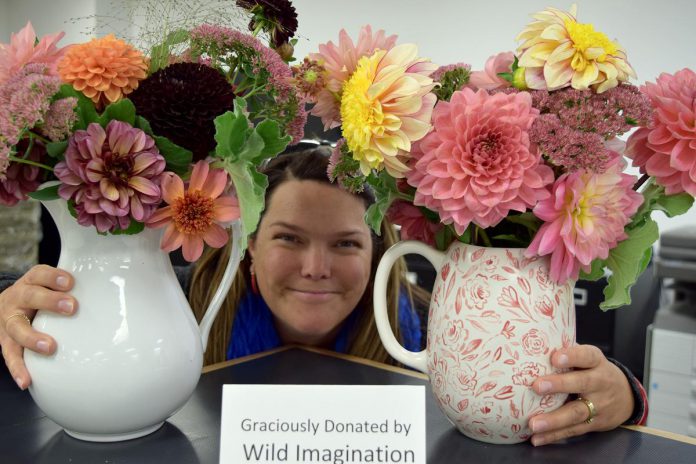
“We’ve just experienced two hours of pure pleasure,” Marjoram says. “A large part of that is due to the leader. She gets us going in the morning — a lot of us are a little tired, and she’s just got so much enthusiasm, it’s just oozing out of her.”
“The ideas she brings forth on a weekly basis, and the way she interacts with people — she makes it fun,” he adds. “That’s what it’s all about. People forget about dementia for two hours. They laugh, have fun, exercise, and test their minds.”
There’s a reason Stubbert is so passionate about her work and why she genuinely cares about each person who attends a Minds in Motion session. She became inspired to work for the Alzheimer Society after following her own grandmother’s journey with Alzheimer’s.
“My grandparents brought a lot of joy to my life,” Stubbert explains. “It was my turn to give back and fight for something I so strongly believe in supporting. And I completely love what I do. I go to work and get to go have fun.”
Stubbert was recently recognized for her work with a nomination for the Peterborough Petes Community Player of the Game award.
“I was completely blown out of the water,” Stubbert says. “I find those who come to my program really support me and go out of their way to tell me what they think of me and how much they appreciate me.”
Stubbert is equally as appreciative of those who participate in her classes, noting she has seen lives transformed through Minds in Motion and the Alzheimer Society as a whole.
“The first class I ever ran, a gentleman came in with a walker and he was quite unsteady on his feet,” Stubbert recalls. “His wife was a huge supporter and did the homework with him every single day. He came to every single class and, by the end of the eight weeks, he was walking with his cane occasionally.”
Around 76,000 Canadians — including 14 out of every 1,000 seniors — are diagnosed with dementia each year, and one in five Canadians have experience caring for someone living with dementia.
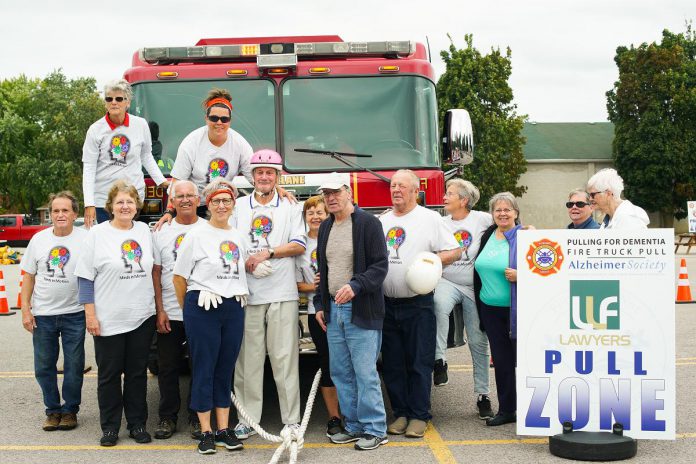
“The population of Peterborough is aging,” Stubbert points out. “Focusing on programs that are needed, such as for those who have dementia, is important because we can give tips and strategies on coping with it. We can’t slow the progression down, but we can help manage it.”
Your donations to the Alzheimer Society of Peterborough, Kawartha Lakes, Northumberland and Haliburton help fund social recreation programs like Minds in Motion. To give a monthly gift, a one-time donation, or to donate in honour or in memory of someone important to you, visit donatealz.ca.
For more information about to Alzheimer Society of Peterborough, Kawartha Lakes, Northumberland and Haliburton, visit alzheimer.ca/pklnh. You can also follow them on Facebook, Twitter, and Instagram.
This story was created in partnership with the Alzheimer Society of Peterborough, Kawartha Lakes, Northumberland and Haliburton.


